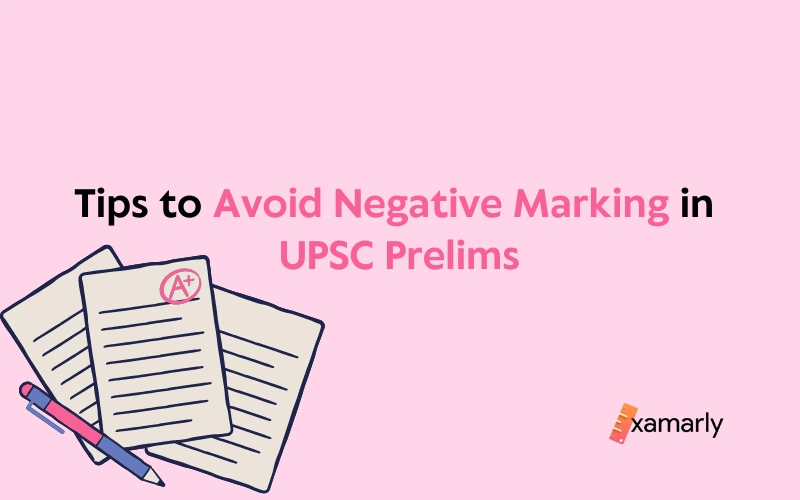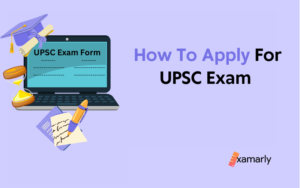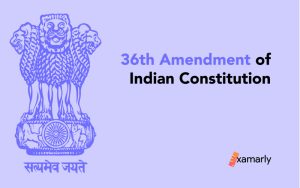Negative marking is a crucial aspect of any competitive examination, and the Union Public Service Commission (UPSC) Civil Services Examination is no exception.
The UPSC Preliminary Examination is the first hurdle that aspirants need to clear in order to progress to the next stage of the exam. It is a highly competitive exam, and negative marking can play a significant role in determining the outcome of the exam.
In this blog, we will take a closer look at the concept of negative marking in the UPSC Prelims, its implications on the final score, and tips and strategies to overcome it.
Whether you are a seasoned UPSC aspirant or just starting out, this blog will provide you with valuable insights into the world of negative marking and help you approach the UPSC Prelims with confidence.
Let us discuss the UPSC CSE Prelims exam pattern first and then we’ll see how to avoid negative marking in UPSC prelims.
- UPSC Prelims Exam Pattern
- Negative Marking Scheme in UPSC Prelims Exam
- Should an Aspirant Rely on Blind Guessing?
- How to Calculate Final Score After Deducting Negative Marks in UPSC Prelims
- Steps to Avoid Negative Marking in UPSC Prelims Examination
- 1. Read Every Question Carefully
- 2. Choose Between 2 Options (The 50-50 Lifeline)
- 3. Focus on the Keywords
- 4. Avoid Blind Guesswork
- 5. Avoid Wastage of Time
- Some More Tips to Avoid Negative Score in UPSC Prelims Exam
- Conclusion
- FAQs on How to Avoid Negative Marking in UPSC Prelims
- What is a negative marking in the UPSC Prelims?
- Why does UPSC have negative markings?
- How many marks are deducted for an incorrect answer in the UPSC Prelims?
- Can negative marking be avoided in the UPSC Prelims?
- How does negative marking affect the overall score in the UPSC Prelims?
- What is the strategy to minimize negative marking in the UPSC Prelims?
- Is negative marking uniform for all subjects in the UPSC Prelims?
UPSC Prelims Exam Pattern
The subsequent table sums up the UPSC Prelims Exam pattern as well as the marking scheme of UPSC Prelims:
| Paper | Objective of the Paper | Number of Questions | Maximum Marks | Duration | Negative Marking | Cut-Off Mark |
| GS Paper I | Ranking | 100 | 200 | 2 hours | Yes | Prescribed |
| GS Paper II (CSAT) | Qualifying | 80 | 200 | 2 hours | Yes | 33% |
Also Read: UPSC Exam Pattern
Negative Marking Scheme in UPSC Prelims Exam
The UPSC Prelims are objective in nature. MCQs or objective types of questions are asked in the Civil Services preliminary examination. There are 4 answer choices for each and every question. Out of 4 answer choices, only one is correct.
- If you choose the right answer you gain the allotted marks ( 2 marks in GS Paper I and 2.5 marks in GS Paper II).
- If you happen to make the wrong choice, then the one-third mark is deducted as a penalty. For example in GS Paper I, for 1 correct answer, you gain 2 marks and for 3 incorrect answers, you lose 2 marks which imply you got zero in those 4 questions.
- If you have made more than 1 choice and among those choices, if one is correct then also 1/3 marks will be taken as a penalty.
- If you have left the question unanswered then there is no negative marking.
Many of the aspirants in the Civil Service preliminary examination try to guess most of the multiple-choice questions which results in scoring fewer marks if you guess them blindly.
Should an Aspirant Rely on Blind Guessing?
Well, we as humans by default use the mathematical theory of probability in every decision-making. Even if we don’t know the answer, we try our best to pick the most reasonable and logically sounding option with the help of whatever little information we have related to the topic.
This is also applicable when aspirants try to guess the correct answer from various options.
Furthermore, the ways of making logically sound decisions can be enhanced by working on thought processes and building strategies around them to make this decision-making (guessing) more effective.
In short, blind guessing should be discarded as a practice to avoid negative marking in UPSC prelims.
How to Calculate Final Score After Deducting Negative Marks in UPSC Prelims
For the prelims, every question in GS Paper 1 is worth 2 marks. If a student answers a question correctly, 2 marks will be rewarded to him. There is also a penalty for getting questions wrong.
For every question in which you mark an incorrect answer, UPSC deducts one-third of the question’s marks. For every question, you will receive 2 marks and 1/3 penalty marks will be deducted for an incorrect answer.
Now let’s say that the student attempted 72 questions in the preliminary exam. But, even if he or she marked 60 questions correctly, and mark 12 wrong answers. So his expected score would be: 60 * 2 – 12 * .67 = 120 – 8 = 112 marks.
You Might Also Like: 3 Ways to Build a Revision Strategy for UPSC – A Must
Steps to Avoid Negative Marking in UPSC Prelims Examination
There are some useful and effective tips mentioned below that will not only help you to decide your answers but also aid you to avoid negative marking in UPSC prelims.
1. Read Every Question Carefully
Read the questions thoroughly before answering. If you are 100% sure about that question then make the correct choice, else proceed to the next question and keep this one for further re-read.
Understanding what is there in the question paper is everything while trying to avoid negative marking in UPSC Prelims. Being the toughest exam in India, UPSC Civil Services Exam has a reputation for asking trick questions also.
There can be many tricky type of questions that if not read carefully will lead you to choose the wrong answer. These wrong answers will be a factor to affects your score negatively by awarding you negative marks as a penalty. So reading every question carefully is of utmost importance.
2. Choose Between 2 Options (The 50-50 Lifeline)
While you are going through the questions and if you come across any question for which you are 50% certain, then attempt it.
For example, if you are juggling between 2 answers for any question, then mark those 2 options with a light pencil in the question booklet for further review.
If question 13 is one such question where you are juggling between options B and D. Put one dot against option B if you think this option has more probability to be correct and hence put 2 dots against option D and vice-vice-versa.
Keep such questions for reviewing later on. If you have time in the end then think rationally, else mark the option that has one dot. This elimination method can work wonders, but remember to not apply it to every question even if you are not sure about your understanding or knowledge of the topic.
3. Focus on the Keywords
Read the questions and options carefully to understand the keywords hidden in them. As there are some questions in which one wrong statement strikes 3 options and ultimately lands you on the correct choice.
4. Avoid Blind Guesswork
Blind guesswork will fetch you negative markings that will ultimately affect your overall score. Instead, do intelligent guesswork where rational reasoning is your base. This will increase the probability of making the right choice.
Remember not to touch those questions for which you have no idea. As there are some questions for which you may have no idea. Leave such unattempted questions as you will neither gain nor lose. If you touch on such questions then there is a high risk of making incorrect choices that ultimately affect your overall score due to the negative marking.
5. Avoid Wastage of Time
As we all know time is limited in UPSC CSE Prelims Examination. When you waste a lot of time focusing on a question that you have no clue about will leave you with a shortage of time. This shortage of time can be critical as it can lead you to mark the wrong answer/s or misunderstand a question.
You might also have to leave some unattempted questions even if you know the answer to them. All of these will lead to a bad score and ultimately your disqualification. We need to leverage the exam time as that will help you to avoid negative marking in UPSC Prelims.
Some More Tips to Avoid Negative Score in UPSC Prelims Exam
Follow these handy tips to avoid negative marking in UPSC Prelims that are discussed below to ace your UPSC prelims exam:
- Avoid using a pencil for answer marking, and try to select one option and don’t make more than 2 choices, otherwise, you will get a negative marking in such questions.
- Mark the correct choice properly else your answer may not be counted.
- Think twice before choosing an alternative if you are not sure about it (i.e. think sincerely and don’t indulge in blind guesswork) as you will not get a second chance to make the choice. Otherwise, negative markings may hold you back.
- Practice more questions on a daily basis to train yourself to think about the correct answers. Practising daily enables you to develop a thought process and acumen for decision-making. You can also try mock tests for practice.
Related Reading: How To Prepare For UPSC Prelims And Mains Together Like An Absolute Pro!
Conclusion
A negative marking in UPSC Prelims paper can severely impact your chances of qualifying for your UPSC Prelims Examination.
For the majority of aspirants, it is common to encounter questions that they do not know the answer to or are unsure about. This not only brings the morale down but also filters out many hardworking and potential aspirants.
The good part is that you are only required to deal with it in your preliminary examination and not in all the stages of UPSC CSE.
There are several platforms that you can use for giving tests on a daily basis. One of them is Examarly where you can give daily topic-wise tests, quizzes, and current affairs MCQs.
Doing a preparation that is test-based or continuous evaluation-based helps you not only avoid negative marking in UPSC Prelims by doing rational decision-making but only optimizes your effort in identifying your weaker areas and working on them.
FAQs on How to Avoid Negative Marking in UPSC Prelims
What is a negative marking in the UPSC Prelims?
There is a negative marking system in place for the MCQ portion of the UPSC Prelims test, wherein candidates will be penalised for selecting the wrong answer. The exact mark deduction varies from question to question, but usually, it is one-third of the total marks assigned to that question.
Why does UPSC have negative markings?
Negative marking serves as a deterrent for aspirants to avoid random guessing. It ensures that the candidates are careful and thoughtful in their approach to the questions and discourages them from marking answers without proper knowledge.
How many marks are deducted for an incorrect answer in the UPSC Prelims?
Typically, one-third of the marks assigned to a question is deducted for an incorrect answer in the UPSC Prelims. For example, if a question is worth 3 marks, then 1 mark will be deducted for an incorrect answer.
Can negative marking be avoided in the UPSC Prelims?
No, negative marking cannot be avoided in the UPSC Prelims. All MCQs in the exam carry a risk of negative marking, and it is an integral part of the exam pattern.
How does negative marking affect the overall score in the UPSC Prelims?
Negative marking can significantly impact the overall score in the UPSC Prelims. A large number of incorrect answers can result in a significant reduction of marks and hinder the chances of qualifying for the next stage of the exam.
What is the strategy to minimize negative marking in the UPSC Prelims?
The best strategy to minimize negative markings in the UPSC Prelims is to have a thorough understanding of the syllabus and prepare well. Aspirants should also focus on their strengths and avoid attempting questions they are unsure of. Additionally, practising the previous year’s question papers can help in developing a strategy for the exam.
Is negative marking uniform for all subjects in the UPSC Prelims?
Yes, negative marking is uniform for all subjects in the UPSC Prelims. The mark deduction for an incorrect answer is one-third of the marks assigned to the question, regardless of the subject.






